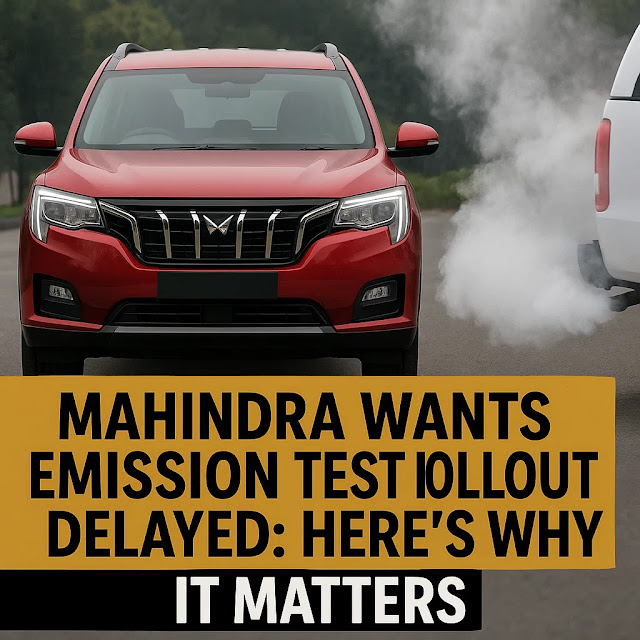Synopsis : Mahindra & Mahindra has urged the government to defer the rollout of the stricter WLTP emissions testing planned for 2027 under BS VI phase 3, citing the need for alignment with upcoming fuel efficiency norms. The move underscores the challenges faced by diesel-heavy portfolios in adapting to globally aligned emission standards.
Automaker Mahindra & Mahindra has formally requested the Ministry of Road Transport and Highways (MoRTH) to defer the rollout of the more accurate Worldwide Harmonised Light Vehicles Test Procedure (WLTP) under Bharat Stage (BS) VI phase 3, planned for April 2027. The WLTP, adopted by the EU in 2018, aims to ensure lab-recorded vehicle emissions closely match real-world driving conditions, focusing on CO2, NOx, and particulate matter.
Mahindra argued that a “standalone migration” to WLTP should be avoided and instead be aligned with the upcoming Corporate Average Fuel Efficiency (CAFE) phase 3 norms, which are still under discussion. Under India’s current BS VI norms, emissions are tested using the Modified Indian Driving Cycle (MIDC), while the RDE test introduced in phase 2 (2023) captures on-road emissions with a less stringent conformity factor than what is proposed under WLTP.
Given Mahindra’s high diesel mix (over 70% of SUV sales), experts highlight that stricter WLTP norms could increase compliance costs, requiring advanced after-treatment technologies to reduce pollutant emissions. Mahindra noted in its letter that WLTP migration needs adequate development time and clarity on CAFE III norms for seamless implementation, warning that “coherence is presently not established.”
The government is currently reviewing Mahindra’s submission, while other automakers are reportedly preparing for the 2027 WLTP rollout. The debate captures the larger tension between India’s decarbonization goals and industry readiness, especially for manufacturers heavily invested in diesel models.
A Mahindra spokesperson declined to comment, while the Ministry did not respond to queries regarding the deferral request.
Disclaimer : This article is for informational purposes only and does not constitute investment or policy advice.






